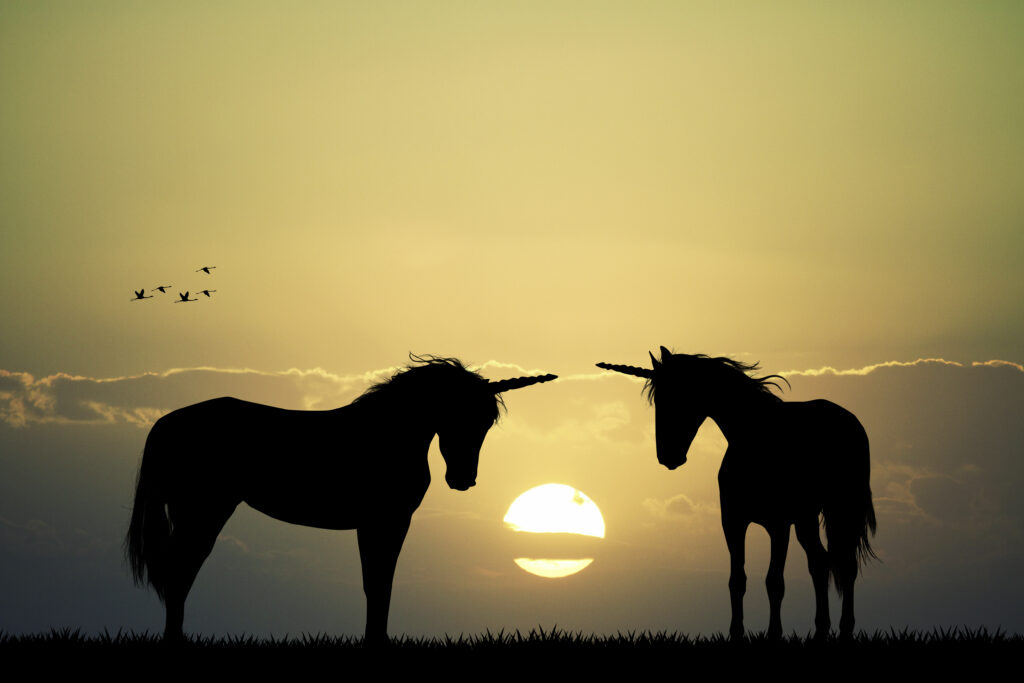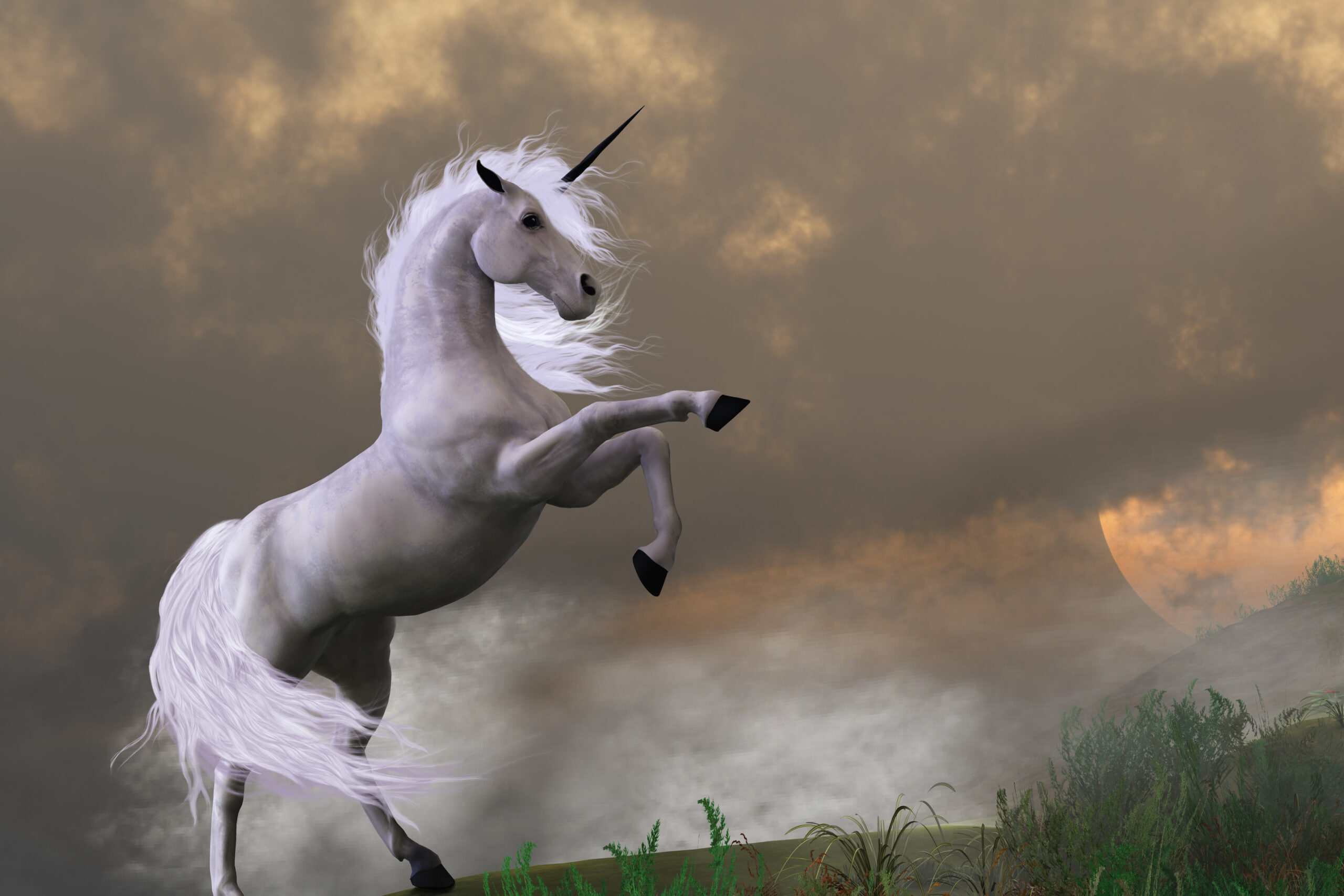Unicorns are mythical creatures that have captured the imaginations of people for centuries. They are often depicted as a horse-like animal with a single horn protruding from their forehead.
Despite their fictional nature, unicorns have become a popular symbol in modern culture, representing purity, magic, and uniqueness.
The concept of unicorns dates back to ancient times, with depictions found in early Mesopotamian artwork and references in ancient Indian and Chinese myths.
In the Western world, unicorns were commonly associated with Christianity, with the animal being mentioned in the Bible as an aurochs, a one-horned rhinoceros, or an antelope.
Throughout history, unicorns have been the subject of many legends and stories, and they continue to captivate people’s imaginations today.
Mythology
Unicorns have been a part of mythology for centuries. They are often depicted as magical creatures with healing powers and the ability to purify water.
Different cultures have their own interpretations of unicorns, and they appear in various mythologies around the world.
Greek Mythology
In Greek mythology, the unicorn was known as a creature called the Monoceros. It was described as a horse with a single horn on its forehead.
The Monoceros was said to be a fierce and untameable creature that lived in the forests of India. It was also believed to be able to heal sickness and purify water.
Roman Mythology
In Roman mythology, the unicorn was known as the unicornis. It was often depicted as a white horse with a golden horn.
The unicornis was believed to be a symbol of purity and was associated with the goddess Diana. It was also believed to have the power to heal sickness and protect against poison.
Other Mythologies
Unicorns appear in many other mythologies around the world. In Chinese mythology, the unicorn was known as the qilin. It was a symbol of good luck and prosperity.
In Hindu mythology, the unicorn was known as the Indrik. It was believed to have the power to destroy evil and was associated with the god Shiva.
Other cultures that have their own interpretations of unicorns include Celtic, Persian, and Arabian mythology.
In each culture, the unicorn is believed to possess magical properties and is often associated with purity, healing, and protection.
Appearance
Physical Characteristics
The unicorn is a legendary creature that has been described as a graceful beast with a horse-like body, a lion’s tail, and a single, spiraled horn projecting from its forehead.
They are often depicted as having a white coat, although they can also be portrayed with coats of different colors.
Unicorns are said to be extremely beautiful, with large, expressive eyes and a gentle expression.
Unicorns are similar in appearance to horses, but they have a few distinct differences.
For example, unicorns are often depicted as having cloven hooves, which is a trait that is not present in horses.
Additionally, unicorns are typically smaller than horses, with a height of around 4-5 feet at the shoulder.
Magical Abilities
Unicorns are often associated with magic and are said to possess a number of magical abilities. For example, they are believed to be able to purify water and heal sickness.
They are also said to be able to render poisons harmless and to detect the presence of evil.
Another magical ability that unicorns are often associated with is the power of prophecy.
According to legend, unicorns can see into the future and can provide warnings of impending danger.
They are also said to be able to communicate telepathically with humans and other creatures.
Despite their magical abilities, unicorns are generally portrayed as gentle and peaceful creatures.
They are often depicted as living in forests or other natural areas, where they can roam freely and be at one with nature.
Cultural Significance

Historical Importance
The unicorn has been a cultural symbol for centuries, appearing in art, literature, and mythology.
One of the earliest interpretations appears in the ancient Greek bestiary known as the Physiologus, which states that the unicorn is a strong, fierce animal that can be caught only if a virgin maiden is placed before it.
The unicorn leaps into the virgin’s lap, and she suckles it and leads it to the king’s palace.
The unicorn also plays a significant role in Christianity, where it is often depicted as a symbol of purity and grace.
In medieval times, the unicorn was believed to be a real animal, and its horn was thought to have healing properties.
Modern Interpretations
Today, the unicorn continues to be a popular cultural symbol, often associated with magic, fantasy, and whimsy.
In recent years, the unicorn has become a popular motif in fashion and design, appearing on everything from clothing to phone cases.
The unicorn has also taken on new meanings in modern culture. For example, in the world of finance, a “unicorn” refers to a startup company valued at over $1 billion.
Overall, the unicorn remains a beloved cultural symbol, representing everything from innocence and purity to magic and fantasy.
Conclusion
Throughout history, the unicorn has been a symbol of magic, purity, and grace.
From ancient Greek mythology to modern-day popular culture, the unicorn has captured the imaginations of people all over the world.
While the existence of unicorns is purely mythical, the concept of a unicorn has taken on various meanings and interpretations.
In some cultures, unicorns are seen as a symbol of power and strength, while in others they represent innocence and purity.
Today, the term “unicorn” has taken on a new meaning in the business world, referring to a startup company that has reached a valuation of over $1 billion.
This term has become increasingly popular in recent years, with many new companies striving to reach this coveted status.
Whether as a magical creature or a business term, the unicorn continues to fascinate and inspire people all over the world.
Its enduring popularity is a testament to the power of imagination and the human desire for wonder and enchantment.

